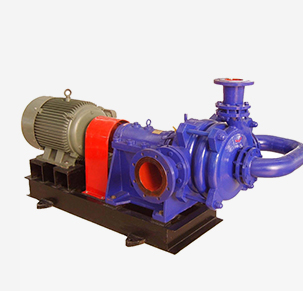English
- Afrikaans
- Albanian
- Amharic
- Arabic
- Armenian
- Azerbaijani
- Basque
- Belarusian
- Bengali
- Bosnian
- Bulgarian
- Catalan
- Cebuano
- Corsican
- Croatian
- Czech
- Danish
- Dutch
- English
- Esperanto
- Estonian
- Finnish
- French
- Frisian
- Galician
- Georgian
- German
- Greek
- Gujarati
- Haitian Creole
- hausa
- hawaiian
- Hebrew
- Hindi
- Miao
- Hungarian
- Icelandic
- igbo
- Indonesian
- irish
- Italian
- Japanese
- Javanese
- Kannada
- kazakh
- Khmer
- Rwandese
- Korean
- Kurdish
- Kyrgyz
- Lao
- Latin
- Latvian
- Lithuanian
- Luxembourgish
- Macedonian
- Malgashi
- Malay
- Malayalam
- Maltese
- Maori
- Marathi
- Mongolian
- Myanmar
- Nepali
- Norwegian
- Norwegian
- Occitan
- Pashto
- Persian
- Polish
- Portuguese
- Punjabi
- Romanian
- Russian
- Samoan
- Scottish Gaelic
- Serbian
- Sesotho
- Shona
- Sindhi
- Sinhala
- Slovak
- Slovenian
- Somali
- Spanish
- Sundanese
- Swahili
- Swedish
- Tagalog
- Tajik
- Tamil
- Tatar
- Telugu
- Thai
- Turkish
- Turkmen
- Ukrainian
- Urdu
- Uighur
- Uzbek
- Vietnamese
- Welsh
- Bantu
- Yiddish
- Yoruba
- Zulu
Telephone: +86 13120555503
Email: frank@cypump.com
Nov . 11, 2024 18:06 Back to list
clean water pump
The Importance of Clean Water Pumps for Sustainable Development
Access to clean water is a fundamental human right and a cornerstone of sustainable development. With billions of people around the world lacking reliable access, innovative solutions like clean water pumps are essential for improving public health, fostering economic growth, and ensuring environmental sustainability. In this article, we will explore the significance of clean water pumps, their operational mechanisms, the various types available, and their impact on communities.
The Necessity of Clean Water
Water is integral to human life and well-being. It is vital for drinking, cooking, hygiene, and sanitation. Unfortunately, according to the World Health Organization (WHO), approximately 2 billion people globally still rely on unsafe drinking water sources. Contaminated water is responsible for millions of deaths each year, primarily affecting children. Clean water pumps offer a practical solution to this pressing issue by facilitating access to safe and potable water.
How Clean Water Pumps Work
Clean water pumps are designed to draw water from underground aquifers or surface water sources and deliver it to communities. They consist of several key components, including a motor, impeller, and pump housing. The motor powers the impeller, which creates pressure to move water through the pump and into distribution systems. Depending on the specific application, pumps may use various technologies, such as electric, solar, or hand-powered systems.
Types of Clean Water Pumps
There are several types of clean water pumps, each with its unique advantages, suited for different contexts.
1. Submersible Pumps These pumps are installed underwater, making them ideal for deep wells. They are highly efficient and capable of moving large volumes of water. However, they typically require electricity, which may be a limitation in remote areas.
2. Solar-Powered Pumps With the rise of renewable energy, solar-powered pumps have gained popularity in off-grid locations. They harness solar energy to operate, making them sustainable and cost-effective in the long run.
clean water pump

3. Hand Pumps These manual pumps are simple, affordable, and require no external power source. They are particularly valuable in rural areas where electricity is unavailable. Hand pumps enable communities to access clean water while empowering individuals with the skills to maintain the systems.
4. Gravity-fed Systems These systems use gravity to transport water from higher elevations to lower ones. While not technically a pump, they are an effective solution for delivering clean water in hilly terrains.
Community Impact
The introduction of clean water pumps can have transformative effects on communities. Access to clean water significantly reduces the incidence of waterborne diseases, leading to better health outcomes. Communities can save time previously spent on sourcing water from distant or contaminated sources, allowing individuals, especially women and children, to pursue education, employment, and other productive activities.
In addition to health improvements, clean water pumps can stimulate economic growth. Local businesses benefit from a healthier workforce, and agricultural productivity increases due to the availability of irrigation. Furthermore, as communities become more self-sufficient with their water needs, they can invest in other essential services, such as sanitation and hygiene.
Environmental Considerations
It is crucial to note that the implementation of clean water pumps must also consider environmental sustainability. Over-extraction of groundwater can deplete aquifers and negatively affect ecosystems. Therefore, responsible management practices should be integrated into the installation and operation of these systems, including regular monitoring of water sources and promoting water conservation measures.
Conclusion
In conclusion, clean water pumps are indispensable tools for ensuring access to safe drinking water in communities around the world. They contribute to public health, empower individuals, and foster economic development, all while promoting environmental sustainability. As we move towards a future where clean water is universally accessible, investing in and innovating safe water solutions will remain a priority. Governments, NGOs, and private sector stakeholders must collaborate to deploy these technologies effectively, ensuring that no one is left behind in the quest for clean water. The investment in clean water pumps is, ultimately, an investment in a healthier, more equitable, and sustainable future for all.
-
ISG Series Vertical Pipeline Pump- Chi Yuan Pumps Co., LTD.|High Efficiency&Compact Design
NewsAug.02,2025
-
Heavy-Duty Mining Sludge Pumps - Wear-Resistant Slurry Handling
NewsAug.02,2025
-
Horizontal Split Case Pump with GPT-4 Turbo | High Efficiency
NewsAug.01,2025
-
ISG Series Pipeline Pump - Chi Yuan Pumps | High Efficiency, Durable Design
NewsAug.01,2025
-
Advanced Flue Gas Desulfurization Pump with GPT-4 Turbo | Durable & Efficient
NewsJul.31,2025
-
ISG Series Vertical Pipeline Pump - Chi Yuan Pumps | Advanced Hydraulic Design&Durable Construction
NewsJul.31,2025










